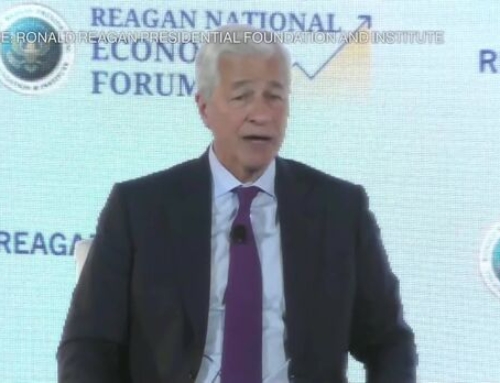Many people, mistakenly, rely only on their 401k for retirement savings. As a supplement to your 401k, you may also choose from a Traditional IRA, Roth IRA or taxable accounts. In all these accounts you could potentially own individual stocks and bonds, CD’s, mutual funds, exchange traded funds, money markets and savings accounts. However, you may not have known that you can invest in all these types of investments with the absolute best federal income advantage when you buy them in a Health Savings Account (HSA).
What is a Health Savings Account (HSA)?
An HSA is a type of savings account that lets you set aside money on a pre-tax basis to pay for qualified medical expenses. By using untaxed dollars in your HSA to pay for deductibles, copayments, coinsurance, and some other expenses, you may be able to lower your overall healthcare costs.
The differences between and HSA and an FSA are not always clear. HSA’s differ from Flexible Spending Accounts (FSA’s) in that your FSA does not roll over each year, but your HSA does. This is the most common reason people who do not use HSA’s give for not using one.
Both plans can be offered by your employer. In some instances, employers will match your contributions. If this is the case I would always suggest contributing because you should never forgo free money. In 2020, the HSA contribution limit is $3,550 for individuals and $7,100 for individuals with family. People over the age of 55 can contribute an additional $1,000. If your employer matches your contributions, they will really start to add up and set you up well for retirement.
Other reasons to love HSA’s?
Some other things that you will love about your HSA are that contributions are fully, federally tax-deductible and there are no contribution limitations based on your income. There is no penalty to withdraw money from your account after the age of 65. This means that you can withdraw money for non-approved medical expenses and not pay a penalty fee.
Your HSA has the potential to earn interest or other earnings, but any growth of your money in your account is tax-deferred. You can also invest your money in a brokerage account, so that your money can grow tax-deferred. You can transfer money from your IRA once within the annual limitation of $3,550 for individuals or $7,100 for individuals with family.
What really stands out about HSA’s is that taking money out of your account for IRS-approved medical expenses is income-tax-free. These “IRS-approved” expenses include dental charges, doctor visits, hospital bills and prescription medications. It also includes insurance premiums, including Medicare and long-term care insurance premiums.
However, you still have to be careful. Withdrawals for non-qualified reasons are taxed and they have a 20% penalty. The 20% penalty does not apply for withdrawals after age 65, but your withdrawals can still be taxed if they are not used for qualified medical expenses.
How Does My Money Grow?
Basic HSA’s are just like interest-bearing checking accounts. These accounts are generally held at a bank and come with a check book and a debit card. With some HSA’s, as mentioned above, you have the option to move your money into a brokerage account. HSA Bank offers customers the opportunity to purchase a health savings account, but it also offers customers the ability to open an account with TD Ameritrade. Therefore, you can buy and sell investments within your HSA. I have a portfolio of mutual funds growing in a brokerage account for my HSA.
Do I Qualify?
In order to qualify, you have to have a “high deductible” health plan, generally a health plan (including a Marketplace plan) that only covers preventive services before the deductible. In 2020, the IRS defines a high deductible health plan as any plan with a deductible of at least $1,400 for an individual or $2,800 for a family. When you view plans in the Marketplace, you can see whether they are “HSA-eligible.”
What About Reimbursement?
There are no rules about reimbursement time frames. You could really leverage this to provide yourself tax free income in retirement but it does require planning ahead and record keeping. Lets say at 58 years old you have surgery on your shoulder and pay for the related medical costs out of pocket not using your has. Down the road in retirement you could reimburse yourself for those costs. This allows you to leave the funds in the account longer so they can grow tax deferred.
Are You Convinced Yet?
Every year, I fund my HSA account with the maximum contributions. I recommend using your HSA as a healthcare bank for long-term savings. You can use this Health Savings Account Calculator to do your own calculations and see the savings potential.
An HSA is a tax haven. They offer tax-deductible contributions, tax-deferred growth and tax-free withdrawals for qualified expenses. It doesn’t get any better than that!
Sourced from Healthcare.gov: https://www.healthcare.gov/glossary/health-savings-account-HSA/
***
Active Wealth Management is a private wealth management firm located in Atlanta, GA. Our team is passionate about educating clients in order to empower them to invest and retire successfully and we believe in managing our client’s assets actively. Active Wealth Management works with three primary groups of people; pre-retirees, retirees, and business owners.
Active Wealth Management is led by our Founder and President, Ford Stokes, and by our Senior Vice President, Brandy Seats. They aim to help clients understand their current financial situation, analyze their current portfolio, and develop a customized financial plan to accomplish their goals. If you would like more information about the firm, please visit our website, https://activewealth.com, or call our office at (770) 685-1777. You will not be passed off to another advisor. You will meet with either Ford or Brandy. You can schedule directly into their calendars at https://activewealth.com/consult/.






